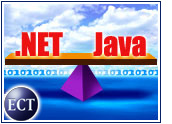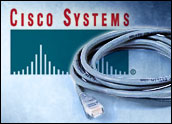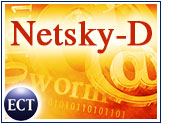
As 2003 dawned, Linux seemed poised to take off. This low-cost, open-source alternative to proprietary Windows and Unix systems had grown so robust and reliable that Fortune 1,000 corporations — entities not known for taking bold IT leaps — were beginning to migrate to it en masse. Meanwhile, giant vendors like IBM, HP and Oracle were basing more of their core offerings on the OS.
But just when Linux seemed poised to scale new heights in its ongoing challenge of Microsoft, SCO crashed the ring like a deranged fan. In March, the company sued IBM for US$1 billion for allegedly using some of its proprietary Unix code without compensation. Earlier this month, SCO issued intellectual property licenses for entities using Linux, implying that anyone who chose not to buy a license would risk severe penalties.
Industry experts have expressed skepticism that any Fortune 500 company will capitulate and buy SCO’s licenses on the basis of what are now only allegations. At the same time, research firms like Gartner have cautioned their clients against embarking on full-scale Linux deployments, at least until the SCO situation plays out.
“SCO has definitely made companies more cautious about deploying Linux,” industry analyst Stacey Quandt told the E-Commerce Times. “They now have to assess their tolerance for risk and understand that SCO has to prove its case.”
Amid the SCO challenge, which could drag on for years, as well as relatively steady server market share and Microsoft’s continued desktop OS monopoly, has Linux reached a plateau, or will it continue to experience rapid growth despite recent setbacks?
The Teen Years
If you think of Linux’ lifespan in human terms, with the average human being living to about age 80, Linux is the software equivalent of a 12-year-old, Yankee Group senior analyst Dana Gardner told the E-Commerce Times, adding that SCO’s lawsuit is an indication of the operating system’s growing pains.
“Linux is an adolescent starting to get pimples,” he noted. “If [Linux] weren’t a long-term, viable growth market, SCO wouldn’t have gone after its case. You don’t go after a dead market to get royalties, and Linux is still the fastest-growing server platform.”
Quandt agreed that Linux is not plateauing, although she said that on the basis of recent news reports, she can see why people might assume otherwise. She has seen no evidence that companies are scaling back Linux deployments, as the OS still offers the sort of price-performance ratio and flexibility that proprietary platforms are hard-pressed to match.
Moreover, hardware vendors are still introducing Linux-based products. SGI is planning to build a 128-processor cluster server that runs Linux, while AMD’s 64-bit Opteron chip, which IBM is using to build the world’s fastest Linux supercomputer, runs both 32- and 64-bit applications without performance degradation.
Also, “Linux has all of the uses Unix has had [without] the schism you’re seeing in the Unix world,” SuSE Linux spokesperson Joseph Eckert told the E-Commerce Times. “Companies are saying, ‘Wait a second. There are no licensing fees, I can keep using my old hardware, and training [employees] to use it is very easy.'”
Growing Beyond Servers
Indeed, Yankee Group analyst Gardner said he believes Linux has yet to reach its full potential. The OS increasingly is in use as both a server platform for enterprise or hosting use and as an embedded platform for set-top boxes and other consumer electronics. Its multitier architecture allows for horizontal scaling and enables administrators to link many low-cost servers, he noted.
When it comes to making inroads on the desktop, Linux provides users with several options. Technical and scientific environments can replace Unix workstations with Linux, Quandt noted. Specialized industries, such as insurance and retail, can build Linux-based custom applications with relative ease. And, in addition to being compatible with OpenOffice and other open-source alternatives to Microsoft Office, Linux now can cross over and run Office itself on top of it.
As another benefit, ease of access to the operating system’s source code, along with the ability to choose among multiple Linux vendors, ensures the OS is not a “one-size-fits-all” proposition, Quandt said.
It Gets Better
Given Novell’s conservative reputation, the software maker’s recent decision to buy Ximian, a desktop Linux developer, serves as further proof that businesses have only begun to scratch the surface of Linux’ potential, Gardner said.
For her part, Quandt said Novell’s adoption of Linux could prove to be a moneymaking decision for the company. By partnering with companies like SuSE and Red Hat, Novell customers that want to migrate to Linux could continue to use NetWare and other Novell applications without a hitch. Novell then could earn revenue by offering service and support and by offering Ximian as a desktop environment on top of the Linux kernel.
Although it might not be surprising that SuSE’s Eckert believes Linux’s growth potential is enormous, he said his experience at the recent LinuxWorld conference has only intensified his convictions.
“IBM, AMD, Intel, they had huge booths, all of them crowded with hundreds of people,” Eckert said. “Meanwhile, [SuSE’s] and Red Hat’s booths were packed — and not with guys in backpacks and sandals. They were from companies like Ford and Citibank, and they were all wearing suits.”













































IBM is investing billions of dollars into Linux, and plenty of other large companies have been backing Linux for years.
Gartner can take their caution and shove it.
This SCO fiasco will only result in increasing interest in Linux.
Okay, but why is someone going to pay for Ximian Desktop when they can get KDE for free?
The SCO Group (TSG) appear to be running a simple pump-n-dump, they have insiders selling like there’s no tomorrow and outsiders (the principal one of which sports Melinda Gates on its Board) helping to keep their stock pumped.
:
They’ve been fined by a German court after failing to prove any of their claims, and even if through some travesty of justice they prove the claims (which seems impossible given that their best shots were BSD or well-documented clean-room rewrites) in the USA the proof is against distributors, NOT against any users.
:
Meanwhile if they succeed in their claims they automatically lose any right-to-distribute over Linux themselves, and they’ve been incorporating drivers from Linux into UnixWare with a free hand, meaning that unless they manage to shoot down the GPL they’ve effectively Open Sourced their own UnixWare code. All of it.
:
Owning SCOX shares is a short-term proposition. If their shareholders don’t cotton on to the scam, when IBM eventually smacks them down there will be very little left.
Good coverage of Novell! Novell’s proven secure products such as eDirectory, GroupWise and NetMail are or soon will be available on the Linux platform.